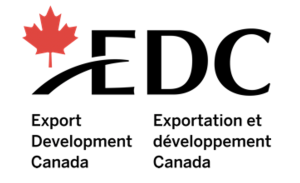Quebec's New International Policy and Japan
Remarks to the CCCJ, June 13, 2006
I am honoured to be with you today in one of the most prestigious capitals in the world, which is also a symbol of the industrial strength of Japan. I would like to thank the President of the Canadian Chamber of Commerce in Japan, Philip O'Neill, for inviting me to speak to members of the Chamber and their guests.
I also would like to emphasize the excellent cooperation that we have been enjoying for many years with the Canadian Embassy in Tokyo. Representatives of the Delegation generale du Quebec in Tokyo, whose presence in this city spans more than 33 years, can testify of the unwavering support and fine professionalism of the Embassy staff. We sincerely thank Mr. Ambassador Caron and his team.
Dealing with Misperceptions
The Canadian region many of you are probably most familiar with is the most-western province of British Columbia with its population of 3.9 million people and GDP of $168 billion. British Columbia is Canada's front door to the Pacific Rim. Today, we are inviting you to look east to the other end of the country and discover the province of Quebec with its 7.2 million people and GDP of $274 billion.
Just a short time ago in Montreal, on the 26th of May, I had the pleasure of greeting some 50 top industry executives from Japan at the 'Discover Japan in Montreal' event. I'm now very honoured to pursue my exchanges with the Japanese business community right here in Japan.
As much as Japan is a modern and vibrant society that has experienced rapid change in the last 15 years, so is Quebec. Still, we encounter people from all walks of life whose notions of our countries are passe or stereotyped. Their mental images of our cultures are very removed from reality.
I'm sure you would like to correct any foreigner who believes that in Japan geishas are ubiquitous and can be found at every street corner in Tokyo.
Likewise, when I hear someone say that in Quebec they can't communicate because everybody speaks French, I want to respond by saying that Montreal is the largest bilingual city in North America; that in Quebec, though 80% of the population speaks French, learning French and English is mandatory in elementary school and high school.
Another misconception regards Quebec's political aspirations. Canada's Prime Minister Stephen Harper says that Quebec has one of the most federalist governments in the country. I belong to the Liberal government of Quebec that was elected three years ago. We believe in a strong Quebec within a united Canada. And so does the majority of Quebec citizens, who clearly and expressed this notion at the last referendum.
Object of this Visit
My visit to Japan today stems not from a matter of chance, but from a matter of fact. My trip here comes in the wake of Quebec's new international policy, announced on the 24th of May. This new policy is important for Quebec because it redefines our vision of the world, and allows us to channel our efforts towards those countries and people with whom we wish to create special, long-lasting bonds.
In the context of this policy, Japan stands out of a select group of countries with which Quebec wants to strengthen its relations. This policy recognizes Japan's leading role in Asia, the world's fastest growing economic region. In this spirit, we have decided to reinforce the economic functions of the Delegation generale du Quebec in Tokyo.
I came to Tokyo to meet personally with you, to tell you what we intend to do, and to convince you of just how serious we are in implementing our course of action.
Quebec's International Policy
Quebec's new international policy, of course, confirms the importance of the United States and Europe with regards to our political and economic relations. But the policy now emphasizes Asia, and more specifically Japan, as a focal point of our economic relations.
The policy will allow us to focus economically on Japan and to deploy additional resources in Asia. Tokyo offers much more than economic incentives. It is a major stage from which Quebec can reach out to other Asian communities. We believe it is important to take stock of our experience in Japan to successfully develop strong relations with these communities. These are only but a few of the many highlights of Quebec's new international policy that are specific to Asia.
Quebec's Delegations Abroad
Some of you may have wondered what is the use for Quebec to have an office in Tokyo when we already have a Canadian Embassy. Quebec has a network of 28 representation offices around the world. The office of the Delegation generale du Quebec in Tokyo was established 33 years ago in 1973 to develop economic and commercial exchanges with Japan.
It is noteworthy that Quebec was the second government after Australia to call on the yen market to help finance its public expenditures. Even today, about 8% of Quebec's national debt is funded in yen. More specifically, Quebec's offices abroad offer our business people a variety of services that are complementary to those given by the Embassy. Our services directly support our enterprises by helping them promote themselves in Japan.
Quebec-Canada Complementary Roles
To demonstrate the complimentary nature of the relationship between the Delegation generale du Quebec and the Canadian Embassy, let me tell you this story. On the 23rd of May this year, the Japan Agricultural Standard Committee approved in principle to list Jack Pine from Quebec and other Canadian regions as an approved ingredient in the manufacturing of structural laminated wood products. This revised list of standards is scheduled to be ratified in March, 2007.
If I may, I'd like to take this opportunity to acknowledge the presence among us today of Mr. Mizuta and Mr. Miya of Japan's ministry of agriculture, forests and fisheries. I wish to thank them personally for their understanding and support, without which it would have proven difficult to finalize this approval.
Efforts toward this agreement were begun in 2001. Quebec and the Canadian Embassy worked together with diverse associations including Canada Wood, Quebec Wood Export Bureau and the Forintek company in providing all necessary and relevant documents and information, and facilitating all procedures toward securing this accreditation. Quebec manufacturers will stand to benefit directly from the success of these joint efforts.
Quebec Innovation and Creativity
Quebecers are often described as an innovative people both in industry and culture. For example, Montreal has the greatest number of engineers than any other city in Canada. More than 60% of Canada's engineering firms are located in Montreal. And it is in Montreal that we find the largest number of patents issued by the United States Patent & Trademark Office (USPTO), representing 30% of all Canadian patent bearers (according to ISQ, 2006).
Quebec creativity is also in the spotlight on the international cultural scene. For example, world renowned circus company Cirque du Soleil is widely known and admired in Japan for its numerous productions including Quidam, Saltimbanco, Allegria I and II. Cirque du Soleil performances have been seen by millions of Japanese. And in 2008, Cirque du Soleil will open its first permanent venue outside North America right here at Tokyo Disneyland.
Montreal has often been called the 'creative city' ever since best-selling author and renowned American economist Richard Florida ranked Montreal at number two among 25 North American cities in terms of 'super-creative-core' manpower in leading-edge sectors like aerospace science, biopharmaceutics, communications and information technology.
Diversification of Export Markets
But creativity alone is not enough. We need to find outlets for our products. Often these outlets can be found in 'niche markets', which are ubiquitous in Japan. Quebec is a world leader in the manufacturing of specialized electronic components, software and industrial machinery. Eighty-five percent of our exports in these fields goes to the United States. However, Japan has become a very important market for Quebec.
Already, Japan is Quebec's largest Asian market for exports of high-tech products. We are proud of our partnership with Japan�s major industrial firms, who use technology developed and made in Quebec in the manufacturing process of their finished products.
Quebec Economic Development Strategy
One of the main objectives of the Quebec's economic development strategy is to raise investment in our innovation sectors to the level of 3% of our GDP. As it stands, Quebec's ratio of R&D expenditures to GDP is presently at 2.74%, the highest of all Canadian provinces. This is also higher than the average among members of the OECD, the G-8 and the European Union.
According to data compiled last year by the firm KPMG, business setup and operating costs in Quebec are among the lowest in the industrialized world. For all sectors of economic activity, these costs are 2.2% below the Canadian average, 8.1% below costs in the US and 15% lower than costs in the G-8 countries. And, our tax system is particularly competitive for business. The taxes Quebec companies pay on their profits are among the lowest in North America.
With regards to Research and Development, Qu�ebec offers the best tax credit programs anywhere that are most advantageous to the fields of aeronautics and biotechnology. In biotechnology, Montreal ranks number four in North America with 143 companies located in the Montreal area and first in Canada in terms of access to venture capital in this sector.
Quebec-Japan Economic Relations
In Quebec, from our point of view, we are very enthusiastic about Japan's economic recovery. The development of Japan's economic relations with China in the past five years was nothing short of spectacular. And this has had a positive impact on Quebec's exports to Japan.
We need to understand that, traditionally, Japan's international commercial exchanges benefited Quebec mostly through its business with the North-American auto industry. Today, the expansive development in commercial exchanges between Japan and China involves a variety of other industrial sectors.
From this perspective, Quebec finds itself in partnership with Japan, intent on advancing Japanese technology in Asia. Why? Because we are contributing to this advancement by supplying through niche markets the specialized products and leading edge technology that is used in developing Japanese technology.
Though the global media's focused attention on China's rising economy sometimes casts a shadow on Japan, I can assure you that Quebec exporters remain totally satisfied in their relationships with their Japanese counterparts.
In the last five years, Quebec exports to Japan have practically doubled, reaching $1.2 billion. This is a significant figure, as Japan is now Quebec's third largest export market in the world. Likewise, imports to Quebec from Japan rank seventh in the world, with sales reaching $3 billion a year.
Exports in the agri-food sector are very important for Quebec. This sector accounts for 44% of our total exports. For the first time, last year, Quebec exported more pork to Japan than it did to the Unites States.
The agri-food sector is one of a broad range of commercial sectors that Quebec is engaged in with Japan. Other noteworthy sectors to mention are: optics and photonics, information technology biotechnology, aeronautics.
The Quebec Aerospace Industry
Aerospace industry is one of Quebec's great sectors of excellence. Quebec is the spearhead of Canada's aerospace industry.
62% of Canada's aerospace industry is based in Quebec; and Quebec's aerospace sector comprises 240 companies with over 39,000 workers using specialized manpower, well advanced in the use of state-of-the-art production methods and technology.
All the big names in the business are found here: Bombardier, Bell Helicopter, Pratt & Whitney, CAE, Rolls-Royce, Honeywell, Lockheed Martin, Oerlikon, EMS Technologies, and many more. Montreal is home to five major international transport organizations including the International Civil Aviation Organization and the International Air Transport Association. Montreal is the only place on earth where all the major components that go into building an aircraft can be found within a 30-kilometer radius.
Qualified Workforce
One of the biggest challenges to the aerospace sector in Japan is the lack of available trained and skilled personnel. Quebec's large pool of highly qualified workers is proving to be a very valuable resource.
Quebec has set up a training network, linked in with technical colleges and universities that offer programs specifically tailored to the aerospace industry. These education programs inject more than 3,600 newly qualified and certified workers into Quebec's aerospace industry each year.
Another advantage in Quebec's hand is the hundreds of specialized workers who have emigrated from countries around the world. They choose to settle in Montreal for its qualities as a bilingual city and one of North America's greatest multicultural metropolises.
Quebec is recognized the world over for the stability of its labour force. For companies, the low staff turnover rate in Quebec constitutes a considerable advantage compared to the US, where the labour force is highly mobile.
Traditional Sectors
While the aerospace industry is a fine example of what Quebec has to offer, traditional sectors such as commodities and natural resources remain vital and robust. Global players from Quebec include Alcan, Noranda and Rio Tinto, not to mention those in the forestry sector.
If the virtues of Japanese green tea are being discovered and appreciated in Quebec, I know that people all over Japan are beginning to discover the virtues of maple syrup and Maplewood. I'm thrilled that the Japanese people are enjoying traditional products that have been the pride of Quebec for a very long time.
Maplewood is an important material used traditionally in the manufacturing of furniture, woodwork and finishing, including cabinetry and flooring. Maplewood is a truly cultural product. I am very delighted to know that in Japan efforts are being made to promote the beauty and quality of Maplewood.
I would like to point out the excellent contribution to this end by Sumitomo Forestry whose nationwide promotional campaign titled 'Supernatural Maple' is going a long way in inspiring and developing a new trend in the use of Maplewood for its aesthetic qualities.
Let me tell you a little known fact about the value of Maplewood in terms of health and the environment. Findings from research conducted in Japan ranks Maplewood as among the wood species with the lowest level of chemical gas emissions, namely VOCs or volatile organic compounds.
A Word about the Kyoto Protocol
The protection and preservation of the environment, the fight against climate change, and the reduction of greenhouse gases are important factors in commanding a resolute engagement of the Quebec government in respecting the objectives of the Kyoto Protocol.
Quebec's New Energy Policy
In light of this view, let me tell you briefly about Quebec's new energy strategy that, I am sure, you will find highly interesting. Whether we live in Quebec or in Japan, we all share a desire to protect the environment, which is our source of food, air and water. It is important to adopt an energy strategy that respects the environment, because problems with the environment will negatively impact on all other sectors.
Quebec's energy strategy is in line with the concept of sustainable development:
1. Quebec is the world's 4th largest producer of hydroelectricity. We intend to raise our production capacity by 4,500 more megawatts through new hydroelectric projects, representing investments of $25 billion over the next 10 years.
2. Quebec has also decided to become a world leader in wind-generated electricity with the objective of producing 4,000 megawatts, or 10% of Quebec's total energy capacity.
3, Quebec will promote research and development in renewable energy technology and encourage the use of bio-diesel fuels, ethanol fuel, geothermal science and solar energy.
In brief, Quebec will have sufficient energy for its people, its industry and export markets in North America.
Partnership in the Energy Sector
You can see clearly here that Quebec has a lot of projects and the will to carry them through into reality. We also know that Japan is itself a world leader in energy-saving technologies. This is a sector rife with possibilities in the development of creative economic exchanges between Quebec and Japan. I invite all investors and companies in Japan that are actively involved in this new and promising sector to join Quebec in realizing our common dream of a better future.
Reasons to Invest in Quebec
If I was to answer the question that is in the mind of many investors here today, that is: 'Why should I be interested in Quebec?,' I would tell them about two of the best reasons for doing business in Quebec.
The first reason is that Quebec has an abundant, highly competent and specialized workforce. And the second reason is that Quebec has an important and stable source of renewable energy that answers to all of the criteria of sustainable development.
Many of Japan's top firms have understood this advantage and have set up their operations in Quebec. Among them are companies like Bridgestone, Toyota Gosei, Fujitsu, Komatsu, Sony, and Olympus.
Quebec's welcoming and implementation programs are among the most competitive in North America and are ready to assist and support Japanese companies and investors who are keen on doing business in Quebec. Our role as an investment partner is upheld through institutions like Investissements Quebec and the Society Generale de financement.
Concluding Remarks
I would like to conclude by extending my warmest thanks to our Japanese partners that have gathered with us here today. I realize the importance in Japan of fostering time-tested trustworthy relationships and how that contributes to the success of healthy business relations. I would like to say how much in Quebec our business people appreciate the sentiment of loyalty perceived among our Japanese partners.
As I mentioned at the beginning of my address, I am very happy to be in Tokyo to reconfirm how important a role Japan can play in Quebec's new international policy. Japan is our number one partner in Asia and we are forever grateful and pleased to do business with you.
We both recognize the importance of our histories as Tokyo was founded in the early 1600s to become one of the greatest cities in the world, so was the city of Quebec founded in 1608 as the oldest city in North America. In 2008, we will celebrate our 400th anniversary, and I would like to extend a warm invitation to you all to come and celebrate this great moment in time with us.
Thank you very much!



























